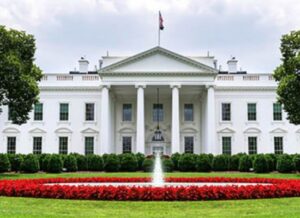
While the recently announced student loan debt relief has captured numerous headlines, it’s estimated that another federal relief program announced on the same day will provide more than $1.2 billion in tax refunds or credits. Specifically, IRS Notice 2022-36 extends penalty relief to both individuals and businesses who missed the filing deadlines for certain 2019 and/or 2020 tax and information returns. The relief covers many of the most commonly filed forms.
Broad Relief for Late Taxpayers
The intent behind the penalty relief is two-fold: 1) to help taxpayers negatively affected by the COVID-19 pandemic, and 2) to allow the IRS to focus on processing backlogged tax returns and taxpayer correspondence. As recently as late May 2022, the IRS had a backlog of more than 21 million unprocessed paper returns. The goal is for the IRS to return to normal operations for the 2023 filing season.
To that end, the notice provides relief from the failure-to-file penalty. The penalty is typically assessed at a rate of 5% per month and up to 25% of the unpaid tax when a federal income tax return is filed late. To qualify for the relief, an income tax return must be filed on or before Sept. 30, 2022.
Banks, employers and other businesses that are required to file various information returns (for example, the Form 1099 series) also may qualify for relief. Eligible 2019 returns must have been filed by Aug. 3, 2020, and eligible 2020 returns must have been filed by Aug. 2, 2021.
Potentially eligible forms include:
• Form 1040, “U.S. Individual Income Tax Return,” and other forms in the Form 1040 series
• Form 1041, “U.S. Income Tax Return for Estates and Trusts,” and other forms in the Form 1041 series
• Form 1065, “U.S. Return of Partnership Income”
• Form 1120, “U.S. Corporation Income Tax Return”
• Form 1120-C, “U.S. Income Tax Return for Cooperative Associations”
• Form 1120-S, “U.S. Income Tax Return for an S Corporation”
• Form 990-PF, Return of Private Foundation or Non-exempt Charitable Trust Treated as a Private Foundation
• Certain international information returns
Notably, the relief doesn’t extend to failure-to-file penalties for Form 8938, “Statement of Specified Foreign Financial Assets,” or FinCEN Report 114, “Report of Foreign Bank and Financial Accounts.”
Exceptions to the Rule
Some other exceptions apply. Penalty relief isn’t available if:
• A fraudulent return was filed,
• The penalty was part of an accepted offer-in-compromise or a closing agreement with the IRS, or
• The penalty was finally determined by a court.
In addition, the IRS isn’t providing relief for the failure-to-pay penalty or other penalties. Such ineligible penalties may, however, qualify for previously existing penalty relief procedures, including the reasonable cause defense or the IRS’s First Time Abatement Program.
No Action Required
The penalty relief is automatic. If you qualify, you need not apply for it or reach out to the IRS in any way. Penalties that have already been assessed will be abated. If you’ve already paid a covered penalty, the IRS says, you should receive a refund or credit by Sept. 30, 2022.
For more information contact Tax Practice Director Richard Morris via our online contact form.
Councilor, Buchanan & Mitchell (CBM) is a professional services firm delivering tax, accounting and business advisory expertise throughout the Mid-Atlantic region from offices in Bethesda, MD and Washington, DC.
© 2022



